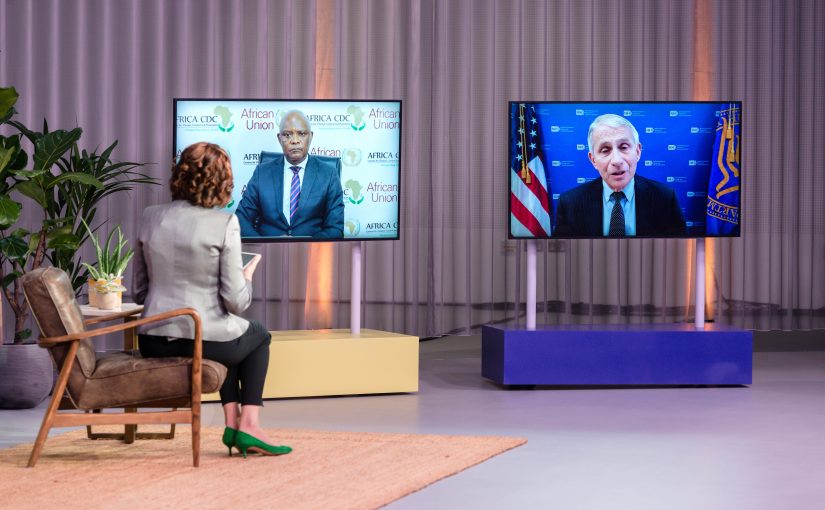It feels like we’ve all been underground. My sense of time is shot completely. It’s like it’s permanently Twixmas, you know, that time between Christmas and the New Year, when, if you fell off your bike and found yourself in hospital with a nice nurse trying to check your mental capacity with a bright ‘what day of the week is it?’, you’d fail dismally because you’d have no clue. It’s been like that all this year. One week slid into another and suddenly it was Christmas and with Omicron rampant, it didn’t feel like there’d been a year in between. We were all still in the same fever dream.
I’ve worked harder this year than I’ve ever worked in my life. True, there has been virtually no travel. What little there was turned into a nightmare of apprehension about forms, tests and whether the rules had changed since you last looked. Every country was different. For instance, I found myself testing twice a day in a TV studio in Germany. To prove we were negative, we were given green wristbands to wear. Sadly I was filming using greenscreen and my hand seemingly floated free from my arm until I was reluctantly given permission to take it off. I didn’t need a test to get into Germany which at the time had super low levels of COVID, but bizarrely I did to return to the UK where COVID cases were then about five times higher. I had to abandon Chicago altogether when the Omicron surge made getting a test almost impossible – not fun if you absolutely had to have one in order to get on the plane home.
I’ve missed my son Ellis, whom I haven’t seen for over 2 years as he has been hunkered down in Sydney, able to get to the UK but not able to return to Oz for his job, without two weeks in a startlingly expensive (and according to Novak Djokovic not very nice) quarantine hotel. But on the bright side, my stepdaughter Hannah finally married her beau, Alex Thorpe after two thwarted attempts – and the fabulous day was worth the wait.
So what was good about 2021? On the corporate side I loved working with the myasthenia gravis community and the rare disease team at UCB where I found a genuine respect for the patient voice. I had a ball interviewing what seemed like hundreds of CEOs of fascinating companies in health, future transport and most intriguingly cannabinnoids for Edison TV in their association with the Stock Exchange. I found myself back working with L’Oreal and their science teams at Lancome, Cerave and La Roche-Posay. A real highlight was interviewing a hero of mine – the great Anthony Fauci for the G7 Vaccine Confidence Summit in June which I had the honour to host. And oh, the bizarreness that COVID imposes on these major events. It was me at the Science Museum, on my own for most of the time, yet with a massive crew of hundreds of tech folk and translators reaching out to the contributors and audience across the world. Respect to everyone involved for pulling it off.
The participant panel at Genomics England have grown into a wonderful, cockle warmingly insightful and astute group that make me proud every time I’m with them. Genomics England’s whole genome sequencing for newborn screening programme began in 2021 with a terrific public dialogue in which the public told us that they wanted us to do a pilot, told us what their red lines were (for instance, parents must be offered support) and finally said very firmly indeed that we were not to mess it up as they thought it was really important. We’ve got the message, don’t worry. And the newborns team at Genomics England headed by Alice Tuff-Lacey is outstanding. Finally, in this part of my life – the dream team of Professor Anna Middleton, Julian Borra and Kate Orvis of PPP began a journey towards socialising the genome.
The science that intrigued me this year – apart from genomics, T cells and spike proteins of course? The EASD meeting introduced me to the notion of being able to modify the course of Type 1 diabetes in young children with microbiome supplementation and an interview with Israeli company Evogene revealed that they think they can increase the effectiveness of some cancer drugs from 25% to 75% simply by modifying the gut biome. Work with Rejuveron and an event with the great Dame Linda Partridge introduced me to anti-aging research – which I think should be called healthspan research.
And if I haven’t mentioned you or your event here, it is not because I didn’t value or remember it – it’s most likely because I thought it happened in 2019. COVID time can’t come to an end quickly enough.
